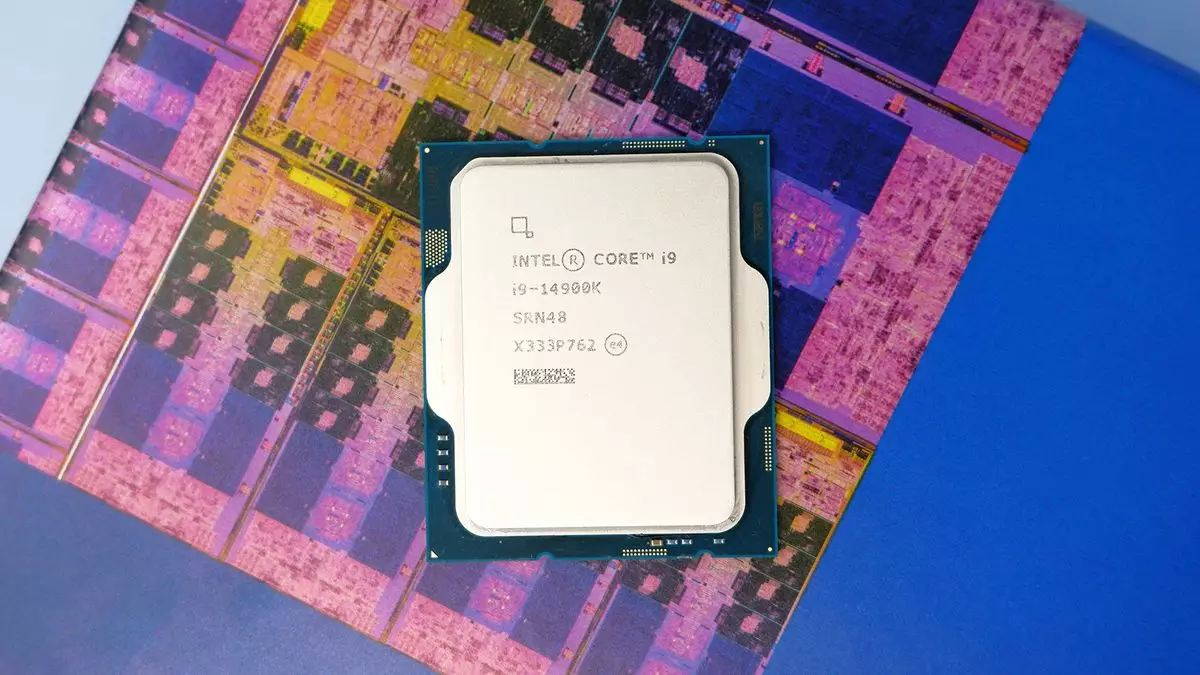A significant legal challenge has arisen against Intel, one of the world’s foremost semiconductor manufacturers. A federal class action lawsuit has been filed in California, alleging that the company knowingly sold faulty CPUs, specifically the Intel Core i7-13700K, which are prone to instability and crashing. This lawsuit marks a pivotal moment in consumer tech litigation, particularly as it exposes potential negligence by a giant in the industry.
The lone plaintiff, Mark Vanvalkenburgh from Orchard Park, New York, claims his CPU, purchased from a Best Buy in January 2023, demonstrated persistent failures despite attempts at rectification through official Intel microcode patches. This raises critical questions about the manufacturer’s accountability and the integrity of their quality assurance processes.
The lawsuit reveals specific details indicating that Intel may have been aware of defects in its Raptor Lake CPUs prior to their public launch. The statement claims, “By late 2022 or early 2023, Intel knew of the defect.” Such awareness could suggest a severe lapse in ethical responsibility, especially when considering the comprehensive testing that Intel products undergo. The crux of the allegations rests on whether Intel ignored known issues to maximize profits at the expense of consumer trust and safety.
Plaintiffs often focus on proving that a company’s products were inherently defective and that sufficient awareness existed within the organization. The legal strategy employed in this case seems to hinge on documented evidence of high return rates and burgeoning user complaints that might demonstrate a glaring disregard for potential hazards associated with their products.
The implications of this lawsuit reach far beyond the courtroom. For a company like Intel, known for its robust presence in the tech sector, reputational damage can be just as detrimental as financial penalties. Should the lawsuit succeed in illustrating that Intel acted with negligence or intent, the fallout could shake consumer confidence and lead to a decline in sales for its affected product lines.
Furthermore, the lawsuit may invite scrutiny from regulatory bodies that oversee corporate conduct in the technology sphere. This situation exemplifies an ongoing struggle for tech companies: balancing rapid innovation with the responsibility to ensure safety and excellence in their products.
Despite the serious nature of the allegations, Intel has publicly contended that the issues associated with their CPUs were effectively addressed through microcode patches. However, as the lawsuit highlights, these patches may only be a stopgap measure. Intel’s acknowledgment that damage caused to specific circuits by voltage spikes cannot be resolved with software solutions adds further complexity to their defense.
In response to mounting pressure, Intel has extended warranties on affected products and improved its return merchandise authorization (RMA) process to manage consumer grievances more effectively. However, this may not absolve the company of liability if proven they were aware of the defects prior to public knowledge.
As this legal saga unfolds, it remains critical for consumers to stay informed and vigilant. The outcome of the class action suit could set profound precedents in how major tech companies are held accountable for the quality and reliability of their hardware. A favorable ruling for the plaintiffs could embolden other consumers similarly affected by defective products to challenge industry models in pursuit of justice and compensation for their grievances.
Moreover, stakeholders within the tech ecosystem—including consumers, investors, and competitors—will closely watch how Intel navigates these troubled waters. Will they elect to fight the allegations head-on, or is a settlement more likely? Ultimately, the handling of this situation will undeniably shape the future landscape for corporate responsibility within the technology sector and affect the level of trust consumers place in tech giants.


Leave a Reply